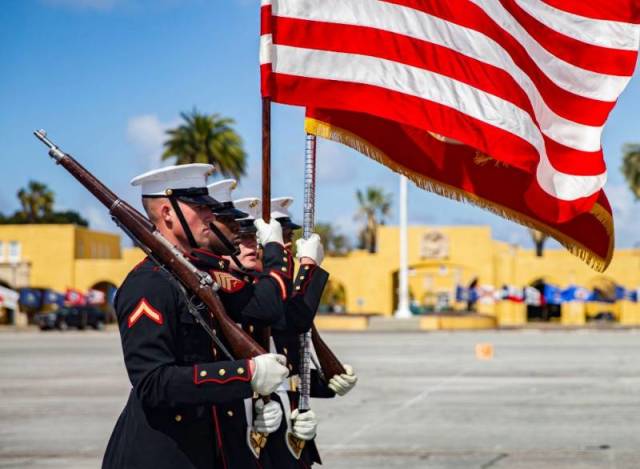
Image source: topwar.ru
For a long time, the US Marine Corps was, and still is, a kind of "calling card" of the American army. After all, for a century, the Marines have been carrying out, as they write in the press of the States, the protection and assertion of US interests around the world. Now the US Marine Corps is on the verge of serious transformations. So, by 2030, there will be fewer infantry units in the KMP, tanks will disappear and the number of aircraft will decrease.
The Corps command claims that it will become more compact, maneuverable and more reliable in combat. The Pentagon is going to invest in high-tech sensors, long-range missiles, unmanned aerial vehicles. Infantry units will be divided into small groups capable of acting autonomously in extreme conditions, evading guided missiles.
Military analysts call the Corps' transformational plan the latest attempt by the US Marine Corps to adapt and outwit opponents. Such modernization also means that the ILC will return to its naval roots after decades of fighting in the Middle East, where the marines actually performed the functions of ordinary army infantry. Now the Corps will have to focus on preparing for a possible confrontation with China and Russia.
According to the Commandant of the Marine Corps, General David Berger, tactics of naval expeditionary operations in actively contested spaces are currently being developed. Having served in the Marine Corps since 1981, Berger participated in many Corps operations in Haiti, Iraq and Afghanistan and perfectly sees the shortcomings and advantages of the Corps, its structure and tactics. He is confident that the service should change the outdated strategy of its development and adapt to changing conditions.
However, not all Marine Corps veterans agree with the upcoming changes. Retired Lieutenant General Paul K. Van Riper emphasizes that before proceeding with the transformation of the ILC, it is necessary to carefully study and analyze all possible consequences of changes.
According to the retired Lieutenant General, the plan of the current commandant of the Corps will only lead to its destruction. A Vietnam veteran, Van Riper believes that history will not consider the actions of the current Corps command justified. Retired Lieutenant General Greg Newbold, former Director of Operations of the Joint Chiefs of Staff, also criticized the plan to change the ILC.
Retired General Terry Dyke, a Vietnam veteran and former assistant commandant of the Marine Corps for Aviation, believes that the reforms will undermine the aviation component of the ILC. This, in turn, will affect not only the Marines themselves, but also American interests in general. Dake openly criticizes the changes in the Corps.
Thus, the future of the US Marine Corps is still being actively discussed by military experts. The reduction in the number of infantry units is perceived by veterans skeptically and even negatively, but the command of the KMP understands that in modern conditions, not the number of soldiers comes out on top, and because of the demographic situation, it is becoming increasingly difficult to recruit numerous units.
